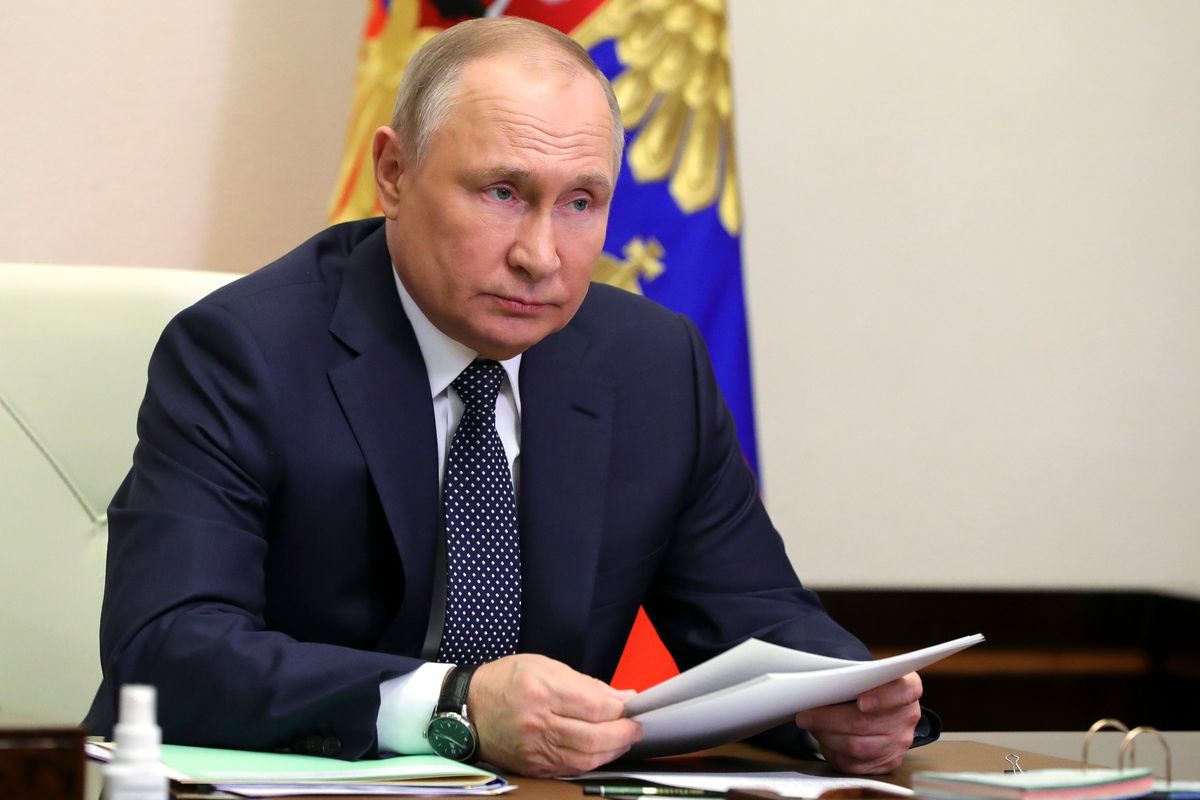Kremlin demands rubles for gas, leaves currency loophole

BERLIN – Russian President Vladimir Putin issued a decree Thursday demanding payment for natural gas in rubles but appeared to temper the order by allowing dollar and euro payments through a designated bank, the latest twist over energy supplies that Europe relies on to heat homes and generate electricity.
The measure got a cautious reception from European leaders who insist payment will remain in euros and dollars and want to see the fine print of how the decree will be implemented.
Countries deemed “unfriendly” for imposing sanctions on Russia over its war in Ukraine can continue to pay in foreign currency through a Russian bank that will then convert the money into rubles, according to a Kremlin decree published by state media Thursday. It came a day after the leaders of Italy and Germany said they received assurances from Putin about gas supplies.
Putin talked tougher, saying Russia will start accepting ruble payments Friday and contracts will be stopped if buyers don’t sign up to the new conditions, including opening ruble accounts in Russian banks.
His proposal has caused natural gas prices to gyrate and raised fears it could be a prelude to an interruption of supplies to Europe, which is heavily dependent on Russian natural gas and would struggle with a sudden cutoff. The German government on Wednesday declared an early warning of an energy emergency, the first step toward authorizing government-imposed gas rationing for industry to spare homes and hospitals.
At the same time, Russia depends on oil and gas sales for much of its government revenue at a time its economy is under severe stress from Western sanctions. Economists say the switch to rubles would do little to support the battered Russian currency’s exchange rate.
The decree Putin signed and state news agency RIA Novosti published says a designated bank will open two accounts for each buyer, one in foreign currency and one in rubles. Buyers will pay in foreign currency and authorize the bank to sell it for rubles on Moscow’s currency exchange. The rubles would then be placed in the second account, where the gas is formally purchased.
People are “wondering what Putin is up to,” said Tim Ash, senior emerging markets sovereign strategist at BlueBay Asset Management. Putin may have read the German government’s unwillingness to boycott Russian energy “as weakness and is now trying to engineer this energy crisis … the solution here is to call Putin’s bluff and say, sure, cut off energy supplies and see who breaks first.”